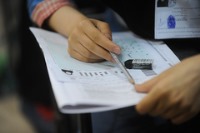I was on holiday in Greece with my parents and my brother Joe. It was all very beautiful and mostly I was enjoying myself, but my family were getting on my nerves
They told me things, all the time. They were usually interesting things, but I got really fed up with the way they always knew stuff I didn’t. They told me stories from Greek myths; they showed me how olives and lemons grow; they taught me how to eat an artichoke. I can’t think of anything they didn’t tell me.I remember sitting outside a cafe on the beach eating honey cake and thinking that my head was so full it didn’t have enough room for a single extra fact or figure
Then my father suggested visiting a tiny rocky island we could see, so we went down to the water’s edge where the boats were moored, and my father talked with two fishermen. An older one only spoke Greek, but his son, Stefanos, spoke English. Although he was really friendly and helpful, when my father asked about a trip to the island, he shook his head and said it was only a rock and no one went there. My mother said we’d like to have a picnic on it, but Stefanos said that was out of the question because there were a lot of submerged rocks around it, which made landing too risky. But to make up for it he offered to take us night fishing
He took us out at sunset, and it was beautiful. There were big lamps fixed to the prow and when Stefanos lit them they made a soft hissing sound. My mother was watching the land, where thousands of tiny fireflies were flickering among the trees. But I was looking in the other direction because I’d seen something amazing – a silver seal. My father said he wasn’t sure if there were seals in Greece and my mother said there definitely wouldn’t be silver ones. I think Joe believed me, but by the time he looked where I was pointing, it had gone – and even I was beginning to wonder if I’d imagined it. Stefanos didn’t say anything. He stopped rowing and lowered a net into the water, saying that we might get fish there. He said they came to the light
And then I saw it again, moving towards us, trailing shimmering streaks through the water. It looked completely magical. Joe shouted out that I was right, it was a seal. It submerged again and my father explained to us that it wasn’t really silver; it was just that there was phosphorescence in the water. I expect he told us all about the microscopic sea creatures that form phosphorescence, but I didn’t listen. Stefanos said the seals were rare and shy, but I just wanted to know where mine had gone. After that I couldn’t pay attention to anything else – I think they caught some whitebait and a small octopus – I just stared at the sea until Stefanos rowed us back to shore again. But there was no sign of the seal
When I saw it the next day, it was a long way out, and I stood at the edge of the sea near Stefanos and his father, who were sorting their nets, and watched it through my mother’s binoculars. Stefanos’ father said something to him in Greek. He sounded cross. Stefanos translated for me. He said his father was angry because the seals took all the fish. Stefanos said it was the big fishing boats that took most of the fish
The old man grumbled about something else
‘He says the seals get caught in the nets and tear them. That’s true, but it doesn’t happen often,’ said Stefanos. I asked if the seals escaped from the nets and Stefanos said that they sometimes did. Later on, I got a fright because my seal dived and didn’t come up again. I pictured him struggling in a net. But Stefanos put my mind at rest, explaining that seals stay underwater for a long time. Perhaps I hadn’t seen the last of my seal after all
1
In the first paragraph, we learn that the writer
a) Was finding her family irritating
b) Was bored by all the things she was being told
c) Was feeling unsure of herself in unfamiliar surroundings
d) Was having trouble remembering all the things she`d learnt
2
. The word ‘it’ in line 6 refers to
a) The writer`s head
b) A room in the café
c) A single piece of information
d) Something the writer was eating
3
Why did the family decide not to visit the island?
a) They discovered that nobody was allowed to go there
b) There wasn`t a suitable place for a picnic there
c) It wasn’t safe to take a boat out there
d) The fishermen had no time to take them there
4
The phrase ‘to make up for it’ suggests that Stefanos
a) Realized that the writer`s mother didn’t believe him
b) Was aware that the family was disappointed
c) Knew that the family enjoyed going fishing
d) Was sorry that he`d appeared unfriendly
5
When the writer first noticed a seal in the water,
a) All of her family thought she had imagined it
b) It was too dark to see what color it was
c) She heard it before she actually saw it
d) Nobody else caught sight of it
6
The word ‘grumbled’ suggests that Stefanos’ father
a) Was complaining about the seals
b) Felt sorry for the seals which got caught
c) Didn’t really want to talk about the seals
d) Disagreed with his son about the big fishing boats
Answer sheet:
1/a
2/a
3/d
4/b
5/d
6/a

